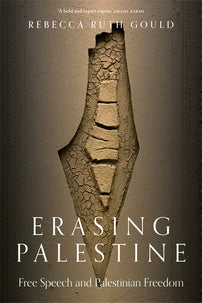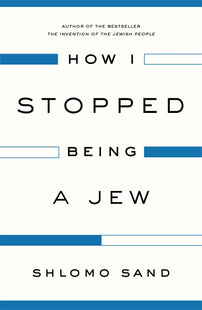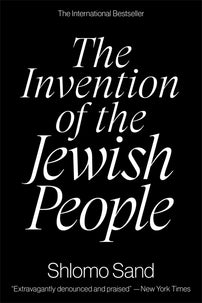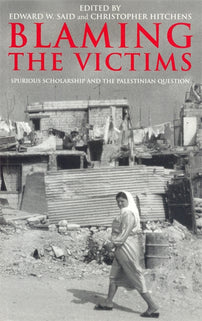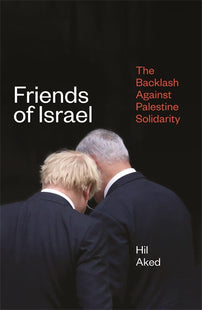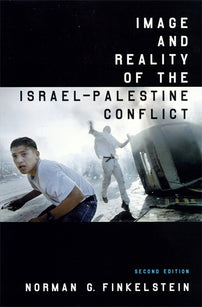"Zionists don't speak for me": On Jewish action for Palestinian Liberation
Jewish organizations like Jewish Voice for Peace and IfNotNow have been staging highly visible and disruptive protests calling for a ceasefire across the United States since Israel began its horrific siege in Gaza. In this essay, Mindy Isser writes about being an anti-Zionist Jew and organizing for a free Palestine.

Like people of conscience all over the world, I’ve been watching in horror as Israel escalates its war on Palestinians, making it clear that their goal is to wipe the Palestinian people off the map. I have felt helpless scrolling on Twitter or watching the news, seeing new atrocities unfold daily, with seemingly nothing to do but cry and post on social media.
But I have not only felt devastated – I have also felt paralyzed by shame as I bear witness to Israel’s brutality. It is nearly impossible to look away from the razed buildings, the babies crushed by rubble, the doctors performing surgery from the lights of their phones, the bombed bakeries. As a United States citizen, I know that my tax dollars are being funneled toward Israel’s genocidal campaign against the Palestinian people. The U.S. gives Israel $3-4 billion per year, money which directly funds and facilitates the continued existence of Gaza’s open-air prison. This money could obviously be used for any number of desperately-needed social programs like Medicare for All, instead of being put toward horrific violence.
And as a Jew, I have felt completely alienated by the community that purports to represent me. In my earliest childhood memories, I recall family members, Hebrew School teachers, and religious leaders telling me about the many promises of the state of Israel: a safe home for all Jews, a place – I was told – where we made the desert bloom. From as early as I can remember, I was taught by my family members and Hebrew School teachers that Jews need Israel because of the devastating losses during the Holocaust and enduring antisemitism. I went to Hebrew School three days a week, and remember feeling almost-constantly panicked about the potential for another Holocaust. The message was painfully clear: everyone hates Jews, and that’s why we need Israel. There was so much about Jewish history and culture I never learned in Hebrew School: our working-class roots and deep commitment to the labor and socialist movements both in Eastern Europe and in the U.S.; Sephardic and Mizrahi culture and customs; the history of Yiddish; even the Warsaw Ghetto Uprising.
And of course, left out of most American Jewish education are the violent origins of the Jewish state: Israel’s dispossession and mass slaughter of Palestinians in 1948. The land on which Israel was built was not a barren desert made fertile by Jewish refugees and immigrants, but the Palestinians’ homeland, inhabited for millennia. When I began to learn the truth – that Israel violently expelled almost 1 million Palestinians to create the state of Israel – I felt completely shocked, and deeply betrayed by the adults whom I had trusted. It seemed – and I now know with certainty that it is – antithetical to Jewish values.
Since I first learned about the Nakba, I’ve regularly felt alone in my religious community. There’s an assumption – from both the Jewish community and society at-large – that because we are Jews, we are also Zionists. Yet, so much of my political compass – including my commitment to anti-Zionism, actually comes from what I’ve learned from being a Jew. The same Hebrew school teachers who instructed me to love Israel also taught me Jewish songs like Olam Chesed Yibaneh (we will build this world with love) and Lo Yisa Goy (nation shall not lift up sword against nation). Israel’s occupation of Palestine and its subjugation of Palestians contradicts these Jewish tenets, yet in a majority of American Jewish communities, those of us who oppose Israeli colonialism are treated as traitors. It’s been confusing to feel both deeply connected to Judaism and Jewish values, and to also be told repeatedly by Jews and Zionists that I’m a self-hating Jew. It often makes me feel like I have no safe religious home. The only times I’ve felt like I’m free to practice my religion as an anti-Zionist, and to proudly declare that I’m an anti-Zionist because I’m Jewish, are when I’ve taken action with Jewish Voice for Peace, an anti-Zionist, Jewish organization that stands in solidarity with Palestinians.
[book-strip index="1"]
I spent the first week and a half of Israel’s siege on Gaza glued to my phone and TV, lost in my own despair, feeling helpless as I was halfway around the world, and feeling ashamed that everything I was seeing was being done in the name of Jewish safety. A friend asked me if I was willing to go to Washington, D.C. on October 18, to call on members of Congress to co-sponsor the call for a ceasefire. The demonstration would be very Jewish – singing, praying, chanting – and would include the risk of arrest.
That Wednesday morning, I woke up very early to take a bus from Philadelphia to DC with other anti-Zionist Jews and allies. We joined a rally with thousands of others demanding an immediate ceasefire, and then a few hundred of us split off to occupy the rotunda of the Cannon Building, where members of Congress have their offices. When we arrived, hundreds of Jews were already sitting down, singing, praying, and chanting; we sang the songs for peace I had learned in Hebrew School as a kid. Some participants dropped banners from above, while Rabbis in tallit blew the shofar. I felt at home and at peace, and knew beyond a shadow of a doubt that I was doing the right thing – regardless of what I may hear from family and other members of the Jewish community. My father, Z”L (of blessed memory), used to call me a self-hating Jew for my work with JVP, and I’m sad to admit that I’m glad he’s not around for this new explosion of violence. I know he’d agree with the Jews who call me “kapo” and “traitor” on social media. Others have told me to convert to Christianity, or that I’m not really Jewish. But they can’t bully their way into monopolizing what it means to be Jewish. Looking around me at the enormous rotunda, filled with Jews standing against injustice, against Israel’s occupation and genocide of Palestinians I was reminded of the long Jewish history of labor struggle and of anticolonial solidarity. To carry on that legacy, I need to speak for myself, because Zionists don’t speak for me.
Capitol police gave us three warnings before they began arresting people. When an officer pulled me off the ground and cuffed me, I felt fear, pride, and power coursing through me. There was a moment of that stomach-fluttering anxiety, but mostly I felt supported, buoyed by the hundreds of Jews next to me, feeling the same fear, the same anger, the same shame, and trying to do something about it. Scrolling on my phone at night by myself watching new horrors unfold, I feel sick with loneliness and anguish. But being in that rotunda with so many others, I felt hope and that maybe we were larger than the sum of our parts – like perhaps this historic moment was the birth of something new. At the very least, it was a powerful rebuke to the continued use of our religion and our culture – so much of who we are – in the name of so much despicable violence. Our protest continued in the police van as the other arrestees on my bus led us in songs and chants until we left the Capitol and got to the place where we'd be processed. Many hungry and thirsty hours later, I was released along with hundreds of other anti-Zionist Jews. I have immense gratitude for the organizers who helped me channel my grief and helplessness into action.
Participating in the demonstration required some minimal sacrifices on my family’s part. I had to take a day off work, as did my husband, because our baby’s daycare doesn’t open until long after he normally clocks in for his shift. There were minor financial costs, like paying the citation fee, along with the stress and physical discomfort – and boredom – of being arrested and waiting to be processed. The greatest sacrifice, however, was that I missed more than an entire day with my child – I said goodnight to him at 7 PM on Tuesday evening, and did not see him again until 7 AM Thursday morning. It was the first time that I’d been away from him for longer than a few hours. This caused me more anxiety and pain than I had anticipated. I’m sheepish to even share this because it, of course, pales in comparison to the horror that Palestinians are living through each day, including the unspeakable losses of their own children.
At a more recent demonstration at Senator John Fetterman’s office, I saw a sign that read, “Every life is a universe.” My husband and my son met me after that protest, and my baby cried when he saw me, seemingly overwhelmed with emotion. He grabbed me desperately, bit my cheek with his brand new tooth, nuzzled his face into mine. I could only think about how I couldn’t squeeze him hard enough, I couldn’t love him more. I could only think about how he is my universe, and I his. I could only think about the mothers like me in Gaza who will never see their babies again, who had to dig through debris to find their bodies, who are tucking their children in at night knowing they may never wake up. I cannot imagine how I would feel or what I would be tempted to do if someone killed my son, destroyed my life.
I think it’s important to share that the choice to take part in direct action isn't always easy to make, and can often feel scary – and with good reason. People across the world face painful consequences for supporting the Palestinian struggle for freedom. Workers have been fired from their jobs and potentially left with fewer options for future employment, while writers and artists standing in solidarity with Palestine have been subject to event and prize cancellations. And of course this is often accompanied by less material but equally important repercussions like social isolation. Still, because so much of this violence is being done in my name – in the name of Jewish security – I have felt called to do whatever I can to put a stop to it, to say loudly and clearly that we need an immediate ceasefire, and to demand an end to the occupation. This purported concern with Jewish safety means that the mainstream media grants me more legitimacy – and responsibility – on the topic of Israel than any other group, and I need to use that position to stand up for what’s right, no matter the cost.
[book-strip index="2"]
Of course, Palestinians and other Arabs are not given the same mainstream attention – despite their tireless organizing for Palestinian liberation – due to their continued dehumanization by the media, by politicians, and often by their wider communities. It’s a perverse and circular issue: Jews are privileged by the media on the question of Israel-Palestine, so I feel obligated to use that platform to reject the mainstream narrative and to champion an end to Israeli apartheid and occupation– a privilege that is nevertheless accompanied by risk. I know that I’ll be able to weather most professional or personal costs, but I can’t say the same for Palestinians, many of whom currently have no access to water or electricity, are watching their homes be reduced to fragments, and are losing their lives or watching their families perish all around them.
Refusing to stay silent about Israel’s crimes against humanity is not a question for me. It’s my obligation as a U.S. citizen, as a Jew, and as a mother. When I look at my son, I am filled with love; I see a world rich with hope and possibility. Every parent deserves that, and I will continue to fight for it, no matter the fear, no matter the cost.
It’s almost Shabbat as I write this. As I prepare for the holiday, it’s impossible not to think about Gaza. I’m setting a table when people’s homes have been reduced to rubble. I’m buying challah when the largest bakery in Gaza has been destroyed. I’m getting ready for the day of rest when there are people who may close their eyes for the night and never wake up. I’m grateful for my Jewish community which imagines a Judaism beyond Zionism and is fighting, singing, praying, and resisting for that vision. Let our shame push us to be brave and free Palestine!
